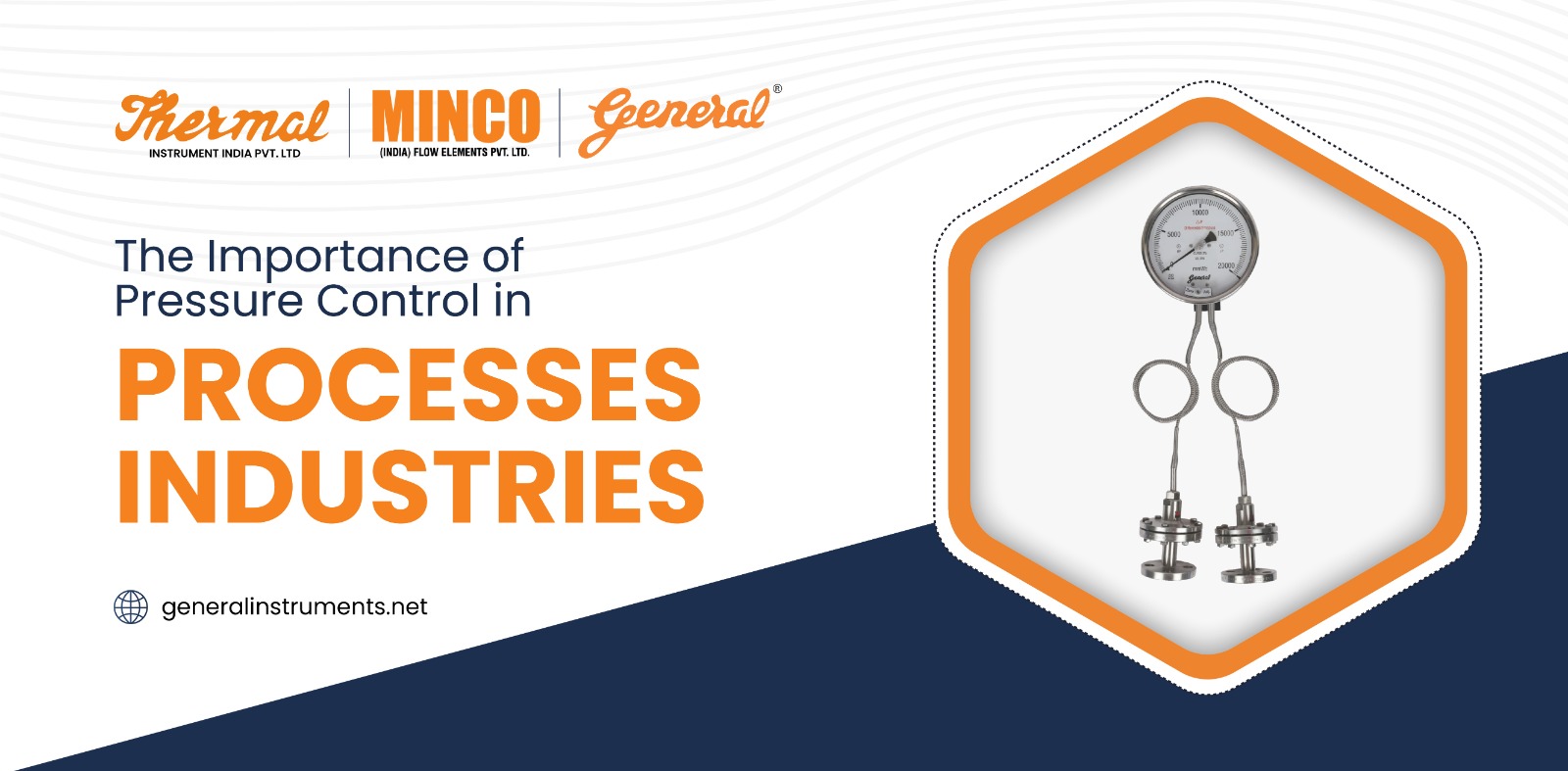
The Importance of Pressure Control in Process Industries
Introduction to Pressure Control:
In the intricate world of process industries, temperature, pressure, flow, and level all play critical roles in ensuring everything functions well. Today, we will look at pressure, which is vital in many industrial procedures. Pressure has a significant role in processes such as boiling, chemical reactions, and distillation.
Pressure has a critical role in deciding industry safety, quality, and efficiency. Poor pressure control can lead to serious difficulties such as safety dangers, quality issues, and lost productivity. Let’s discuss the importance of pressure control in process industries.
The significance of process control in industries is-
Quality and consistency: From life-saving medicines to the steel in your car, process control guarantees products meet exact specifications, every single time. No more flimsy chairs or unreliable drugs.
Efficiency and savings: Precise control eliminates waste and reduces energy consumption, lowering costs for manufacturers and keeping prices stable for consumers.
Safety and sustainability: By meticulously monitoring and adjusting processes, accidents and environmental harm are minimized, leading to a safer and cleaner world.
Innovation and progress: Constant improvement in process control fuels advancements in fields like renewable energy and sustainable manufacturing, paving the way for a brighter future.
Maintaining precise pressure control in process industries is crucial for several reasons, primarily impacting downtime reduction and process optimisation. Here’s how:
Reduced Downtime:
- Prevents Equipment Failure: Uncontrolled pressure fluctuations can put immense stress on equipment, leading to leaks, ruptures, and breakdowns. Precise control mitigates these risks, extending equipment lifespan and minimizing unplanned downtime for repairs or replacements.
- Enhances Safety: Excessive pressure can trigger safety shutdowns, halting production. Consistent pressure control prevents such scenarios, ensuring smooth operations and worker safety.
- Facilitates Predictive Maintenance: Stable pressure data enables proactive maintenance planning, identifying potential issues before they lead to failures. This minimises downtime associated with reactive maintenance interventions.
Additional Benefits:
- Reduced Emissions: Controlled pressure in combustion processes minimizes harmful emissions, contributing to environmental sustainability.
- Improved Worker Productivity: Stable operations due to efficient pressure control led to smoother workflows and potentially higher worker productivity.
Emerging Technologies and Innovations in Pressure Control.
Advanced control algorithms:
- Machine learning and AI: Machine learning algorithms can analyse sensor data and automatically adjust control parameters for optimal performance in dynamic environments.
- Model-predictive control (MPC):This advanced technique optimizes pressure based on predicted process behaviour, improving performance and efficiency.
IoT Integration:
- Remote monitoring and control: Pressure control systems integrated with the IoT allow for real-time remote monitoring and adjustments, improving response time and flexibility.
- Predictive maintenance through data analysis: Data collected from connected pressure control systems can be analysed to predict potential issues and enable proactive maintenance interventions.
To sum up, pressure control has a wide range of applications and is critical to the operation of many industrial processes. Since it impacts quality, safety, production, and eventually advancement in many other fields, it is far more significant than just equipment. Pressure control optimises resource use in the oil and gas industry, ensures consistent, high-quality products in manufacturing and pharmaceuticals, and provides dependable power generation. It is the silent conductor of an impeccable industrial symphony.
In addition, it lowers energy usage, expedites processes, and minimises downtime—all of which save costs and advance environmental and commercial sustainability. As technology develops, pressure control systems, IoT integration, and better instrumentation will boost productivity and flexibility.
